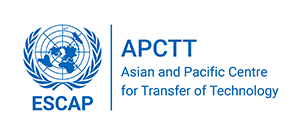Use of Yynurenic Acid Amide Derivatives for the Treatment of Huntington’s Disease
Background information Huntington's disease (HD) – an orphan indication with high medical need. Huntington's disease is a rare neurodegenerative disorder that progressively destroys the mental capacity and motor control of patients. Given that no disease-modifying therapy for HD exists and that available symptomatic treatments are not highly efficacious, the medical need for this 'orphan' disease remains high. Innovation of the product Huntington's disease (HD) is a progressive neurodegenerative disorder, the pathomechanism of which is not yet fully understood. Excitotoxicity is known to be involved in the development of HD and antiglutamatergic agents may, therefore, have beneficial neuroprotective effects. One of these agents is the tryptophan metabolite kynurenic acid (KYNA), which is an endogenous NMDA receptor antagonist. However, its pharmacological properties rule out its systemic administration in CNS disorders. We have tested a novel KYNA analogue in the N171-82Q transgenic mouse model of HD. The analogue exhibited several significant effects: it prolonged the survival of the transgenic mice, ameliorated their hypolocomotion, prevented the loss of weight and completely prevented the atrophy of the striatal neurons. As it did not induce any appreciable side-effect at the protective dose applied in a chronic dosing regime in this mouse model, it appears worthy of further thorough investigations with a view to eventual clinical trials.
Sector: Biotechnology
Country: Hungary
Area of Application: Potential areas of use Treatment of Huntington’s disease. Typical customers Pharmaceutical Companies
Keywords: kynurenic acid, Huntington's disease, NMDA, excitotoxicity
Advantages: Main advantages: The therapeutic importance of kynurenic acid analogues is further increased by the fact, that if the broad-spectrum receptory effects of KYNA are retained, they are capable of widespread anti-excitotoxic activity. KYNA can inhibit N-methyl-D-aspartic (NMDA) acid receptors at the strychnine-insensitive glycine binding sites. And it can also reduce the release of glutamate by inhibiting the presynaptic alfa-7-nicotinic acetylcholine receptors. Furthermore several KYNA amides showed selective inhibition of the NR2B subunit containing NMDA receptors, and NMDA receptors containing these subunits have special importance in glutamate-induced excitotoxicity. Since glycine and polyamine site agents, NR2B subunit specific antagonists and ion channel blockers with lower affinity may come into consideration as NMDA receptor antagonists, as they exert acceptable side-effects, the KYNA amide analogues have a significantly improved side-effect profile compared to other antiglutamatergic agents. This presents a clear therapeutic advantage for patients.
Environmental aspects: Not Applicable
Development Status: Laboratory Model
Legal Protection: Patent
Technical specifications:
Transfer Terms: Research Partnerships
Target Countries: World Wide
Estimated cost (US$):
Upload any relevant document:
Contact Person: Laser Consult Ltd (Hungary)
Address: H-6701 PO Box 1191.
City: Szeged
Country: Hungary
Zip/Pin Code:

